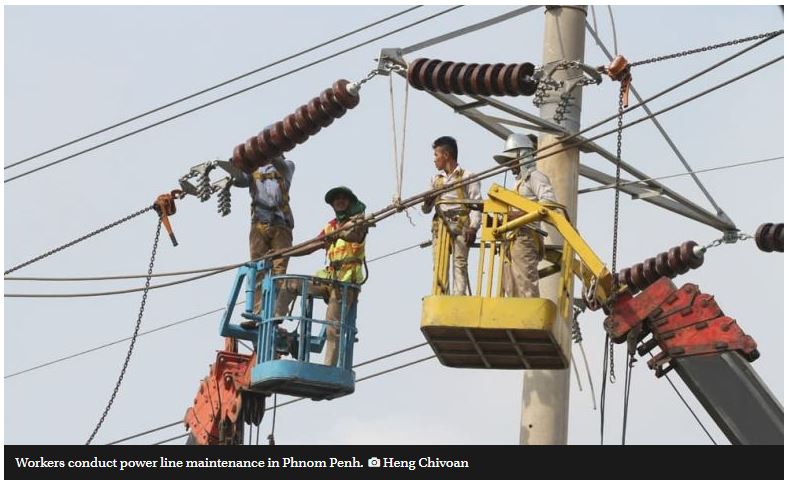Cambodia: Electric rates static amid Covid shocks
Cambodia was one of only nine countries and territories that saw no significant changes in electricity tariffs between 2019 and 2020, as the Covid-19 pandemic began to sweep across the globe.
This is according to recent data posted on comparethemarket.com.au, an Australian price comparison website operated by Compare the Market Pty Ltd.
Compare the Market explored fluctuating shifts in electricity rates during the first few months of the pandemic, which were largely influenced by resource pressures and global changes in demand.
The biggest change was seen in Iran, which experienced a 50 per cent year-on-year drop in rates between 2019 and 2020. Conversely, South Africa saw the largest rise at 25.8 per cent between pre- and mid-pandemic conditions.
Compare the Market digital public relations manager Hannah Norton told The Post: “Based on the research we performed, Cambodia was one of very few countries that reported no change in electricity tariff over the past couple of years.
“The cost has sat quite consistently between 480 and 740 riel [12 and 18.5 US cents] per kWh – depending on the household usage – for some time now,” she said.
“[However, this] is higher than neighbouring countries such as Thailand and Indonesia, where tariffs can be as low as $0.07-0.10 per kWh. In fact, Cambodia’s tariffs are some of the highest across Southeast Asia.”
She said that expensive electricity tariffs in comparison to other countries could be a contributing barrier to attracting investment in Cambodia’s various manufacturing sectors.
However, it does not necessarily detract from the Kingdom’s ability to operate sustainably, she argued. For instance, she said, although private developers charge high tariffs, they are cost-reflective, which allows for sustainable operations.
Garment Manufacturers Association in Cambodia deputy secretary-general Kaing Monika told The Post that electricity rates for 2022 are largely unchanged, remaining some of the highest in the region, which hampers the Kingdom’s competitiveness, especially in energy intensive sectors.
“In trying to both reduce the energy cost and achieve greener production as required by international markets, some private sector business operators have tried to install solar panels while also connecting to the national grid.
“While solar installation has contributed to greener production – thus saving the environment – it’s not financially beneficial to the private sector due to the policy of capacity charges by EdC [state utility Electricite du Cambodge].
“The introduction of high capacity charges neither motivates the use of solar nor brings about financial benefit to the private sector. Some see financial losses as a result of using solar, due to the high capacity charges,” he said.
“These capacity charges should be reduced, at least by half.”
Compare the Market’s Norton said the Electricity Authority of Cambodia (EAC) chairman in early 2020 had announced that the government had decided to invest a “considerable amount” to lower electricity costs for the agricultural and industrial sectors.
“In a positive response, leaders of various farming and manufacturing industries acknowledged that lowering the price of electricity would increase production and uphold competitiveness in their respective sectors.
“Further to this, the Ministry of Mines and Energy’s director-general of the General Department of Energy, Victor Jona, explained that the tariff reduction will contribute to increasing the nation’s competitive factor,” she said.
The EAC on September 10 last year released electricity tariff plans for 2022 of licensees connected to the national grid, which it said was for government ministries and institutions, as well as the licensees to review and comment on before October 10.
The proposed rates were as follows – $0.1138 per kWh for connection at medium-voltage (MV) from grid substations, $0.1290 for those metering at MV, $0.13416 for consumer transformers metering at low-voltage (LV) levels, and $0.14216 for supplier transformers metering at LV.
The rates were due to be effective from January 1, and the first bills issued on January 20, the EAC noted, stressing that it strives to provide better electricity services at reasonable price for homes and enterprises.
Source: https://www.phnompenhpost.com/business/electric-rates-static-amid-covid-shocks


 Thailand
Thailand




